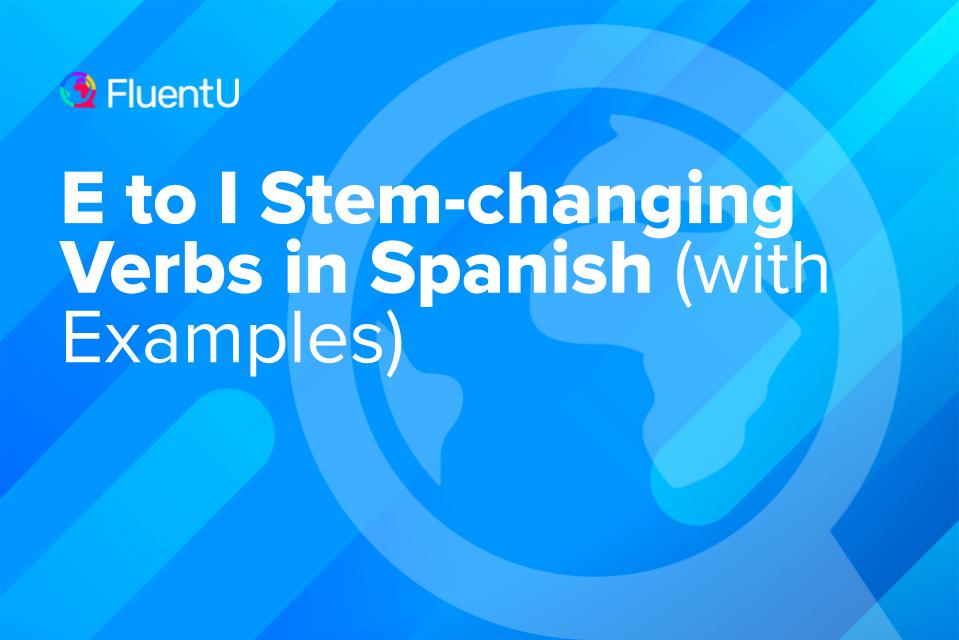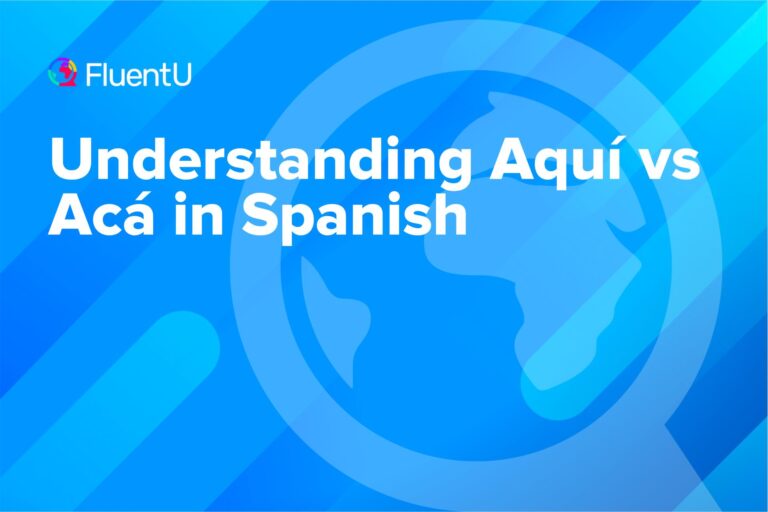E to I Stem-changing Verbs in Spanish (with Examples)

Spanish has a fair amount of irregular verbs, and one of the most infamous of these categories is the e to i stem-changers.
It may sound complicated, but don’t worry. They actually follow some basic patterns, plus many of these verbs tend to be common and useful—so you’ll be able to put this new knowledge to good use right away.
Download: This blog post is available as a convenient and portable PDF that you can take anywhere. Click here to get a copy. (Download)
How E to I Stem-changing Verbs Work
In short, e to i stem changing verbs work like this: in the yo, tú, él/ella/usted and ellos/ellas/ustedes forms, the “e” in the stem changes to an “i.”
This type of stem change only occurs with –ir verbs.
Let’s look at the present tense conjugation of pedir (to ask for, request, order), which is one of the most common e to i stem changing verbs in Spanish:
yo pido
tú pides
él/ella/ud. pide
nosotros pedimos
vosotros pedís
ellos/ellas/uds. piden
Notice that the nosotros and vosotros forms retain the original “e” of the stem, while the other stems change.
Here are some pedir stem changes in example sentences:
Sara pide un pisco. — Sara is ordering a pisco.
Yo pido un pisco sour. — I’m ordering a pisco sour.
Tú pides un vino tinto de la zona de Panquehue. — You’re ordering red wine from the Panquehue region.
Most Common E to I Stem-changing Verbs
Pedir (to ask for, request, order)
pido
pides
pide
pedimos
pedís
piden
Decir (to say, to tell) — note that this verb is also irregular in some forms such as yo
digo
dices
dice
decimos
decís
dicen
Seguir (to follow, to continue) — note that in the yo form, there’s an additional spelling change
sigo
sigues
sigue
seguimos
seguís
siguen
Servir (to serve)
sirvo
sirves
sirve
servimos
servís
sirven
Repetir (to repeat)
repito
repites
repite
repetimos
repetís
repiten
Vestir (to dress)
visto
vistes
viste
vestimos
vestís
visten
Freír (to fry)
frío
fríes
fríe
freímos
freís
fríen
Here are some more common e to i stem-changing verbs to know that follow this pattern. Click on any one to see the conjugations.
- concebir (to conceive)
- corregir (to correct)
- elegir (to elect)
- gemir (to groan)
- regir (to govern, to regulate)
- rendir (to perform, do well, yield)
- repetir (to repeat)
- teñir (to dye)
Practicing E to I Stem-changing Spanish Verbs
Understand how e to i stem-changing conjugations work? Great!
But actually remembering these and using them in your speech and writing is another story. Here are some suggestions for practicing so that you can get to the point where these conjugations just seem normal.
- Quiz yourself. Use online quizzes like this one to check your ability to come up with the correct conjugation.
- Ask questions verbally. Make sure that you can then apply these patterns in your own speech, too. With an online language exchange partner, try out your sentences about yourself and then ask your partner about himself or herself (tú is going to have a stem change!).
With a little bit of practice, you should be on to creating sentences with these e to i stem-changing verbs. Pretty soon, you’ll just know which ones need it because they’re sound weird without it.
Download: This blog post is available as a convenient and portable PDF that you can take anywhere. Click here to get a copy. (Download)
And One More Thing…
If you've made it this far that means you probably enjoy learning Spanish with engaging material and will then love FluentU.
Other sites use scripted content. FluentU uses a natural approach that helps you ease into the Spanish language and culture over time. You’ll learn Spanish as it’s actually spoken by real people.
FluentU has a wide variety of videos, as you can see here:

FluentU brings native videos within reach with interactive transcripts. You can tap on any word to look it up instantly. Every definition has examples that have been written to help you understand how the word is used. If you see an interesting word you don’t know, you can add it to a vocab list.

Review a complete interactive transcript under the Dialogue tab, and find words and phrases listed under Vocab.

Learn all the vocabulary in any video with FluentU’s robust learning engine. Swipe left or right to see more examples of the word you’re on.

The best part is that FluentU keeps track of the vocabulary that you’re learning, and gives you extra practice with difficult words. It'll even remind you when it’s time to review what you’ve learned. Every learner has a truly personalized experience, even if they’re learning with the same video.
Start using the FluentU website on your computer or tablet or, better yet, download the FluentU app from the iTunes or Google Play store. Click here to take advantage of our current sale! (Expires at the end of this month.)







